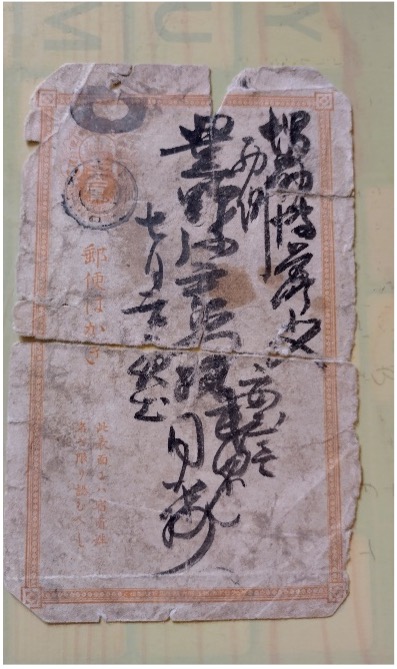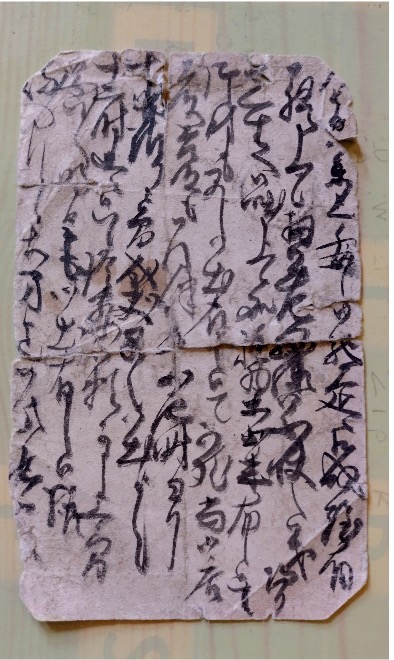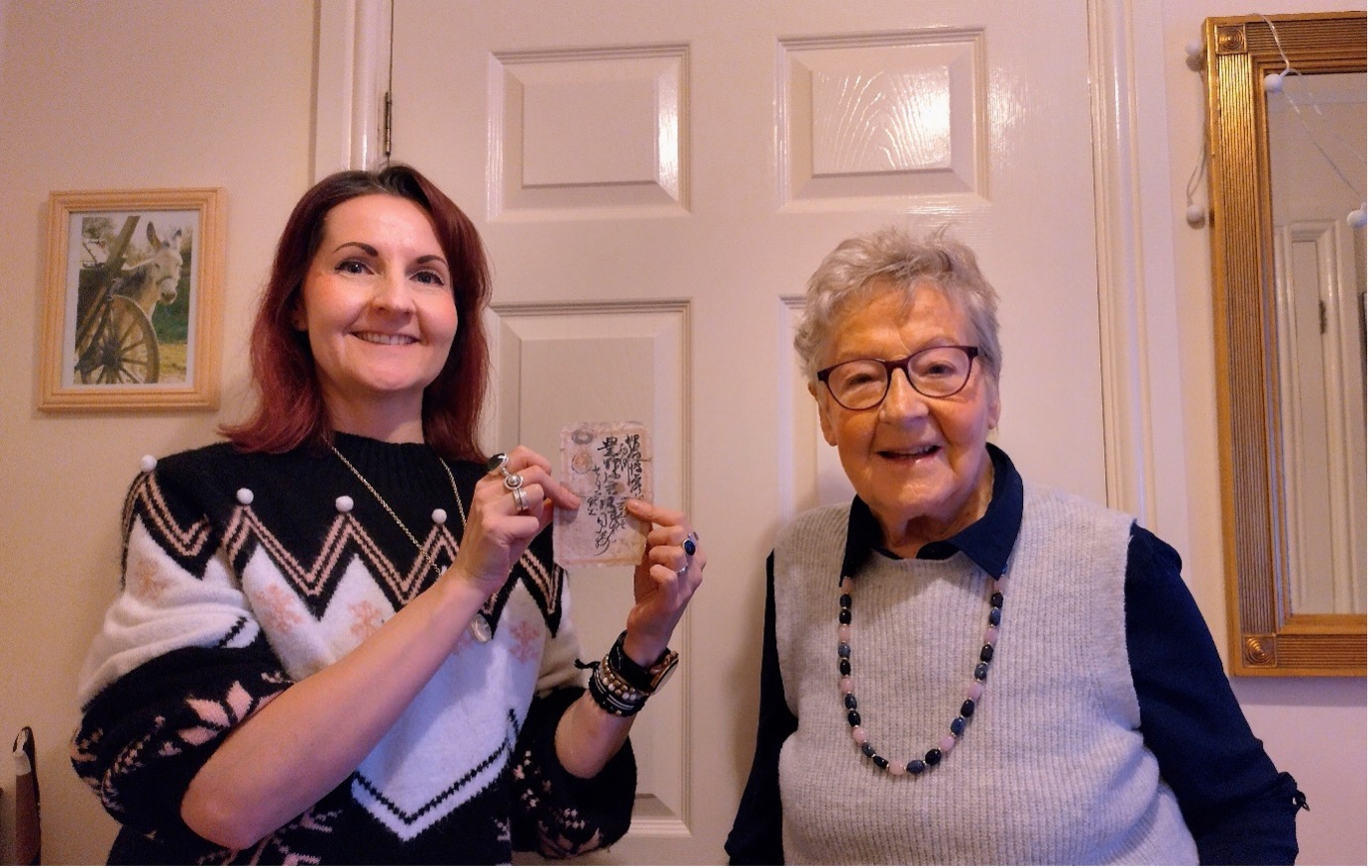December 2022. At the end of a busy term, an intriguing email reaches Prof Laura Moretti’s inbox. Becky and her mum Ruth are desperately looking for someone who can decipher a Japanese postcard that was found at the sand dunes at Sandy Bay in Porthcawl (South Wales, UK). Ruth was 17 or 18, in 1956-1957. It is a Meiji-period postcard. It was in a glass bottle, which had no lid and was filled with sand and debris from the sea. Clearly the postcard struck a chord with Ruth: she treasured it all these years, trying to get a number of specialists to decipher it, without success.


Prof Moretti’s curiosity was piqued. This was just the perfect material to tackle with the research group created with Prof Kurushima Hiroshi and Prof Kudō Kōhei (National Museum of Japanese History).
On 13 December 2022, the group, which features a number of our postgraduate students, cracked the contents of the postcard (see image below). It is nothing that will change our understanding of Japanese history, that is true, but it gives us a warming story of empathy and love.
The postcard tells us that at some point in late nineteenth century Osaka, Ume is so worried about Toyono Yajiuemon’s elderly mother and her poor health, that she arranges an immediate visit with a trusted doctor. This resonates beautifully with Becky and her mother Ruth in 2022 Britain. Becky was desperate to grant her elderly mother the wish of a lifetime: knowing what this postcard said.
We are left to wonder what happened to Ume and to the old Toyono lady. But we know how deciphering this old Japanese postcard has brought joy to Ruth. Listen to her words:
“I have tried on and off for more than 6 decades to try and find someone who could decipher the message in a bottle that I found back in the 1950s.
My daughter Becky then decided to take up the challenge again at the end of last year (she loves a challenge!) This time she was very fortunate to find Professor Laura Moretti.
I could hardly believe it and neither could Becky that Laura wrote back to say that, together with her colleagues in Japan, she had cracked the text.
The joy I felt was difficult to describe. After so many years, the fact that we had found someone who could transcribe the text was wonderful news.
Thank you Laura and your team in Japan for all the time and effort you have given to this. It is extraordinary!”
Connecting people across time and space. This is the power of working with archival materials. Ume, Ruth, and the members of our research group: emotionally connected by this old postcard that made it to the British coast years ago. Thank you Becky and Ruth for making this possible!


